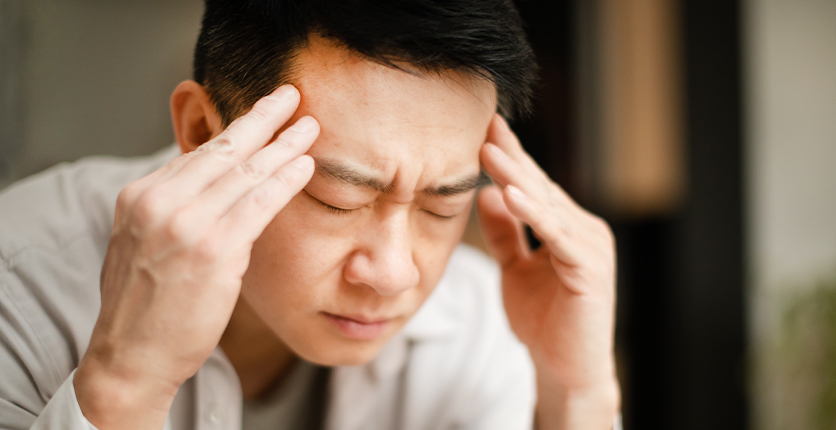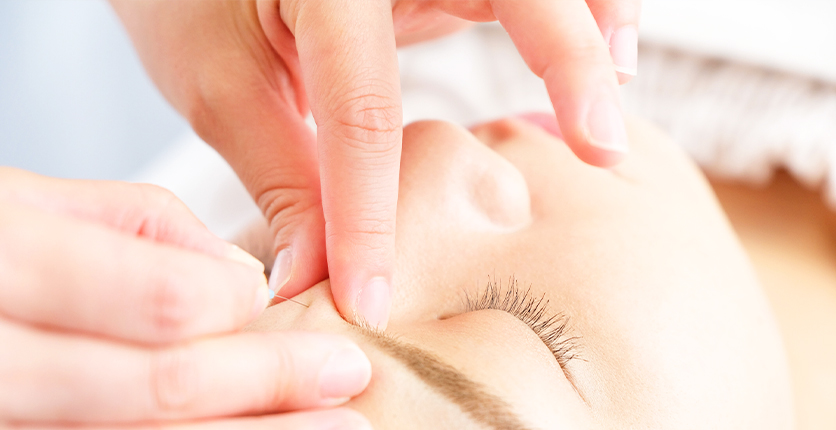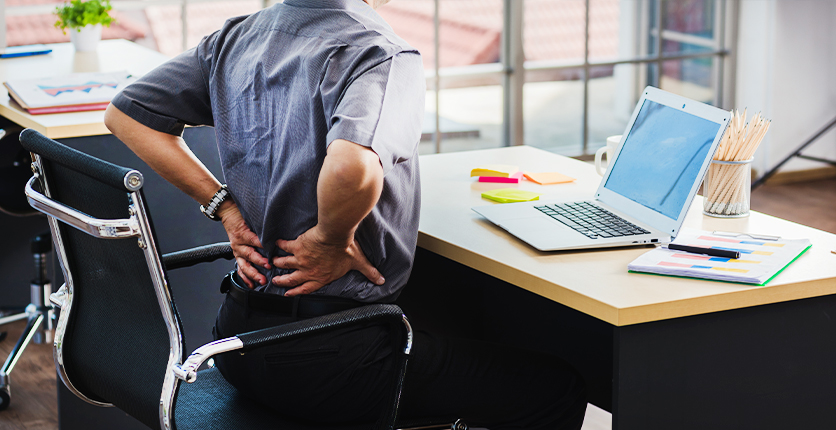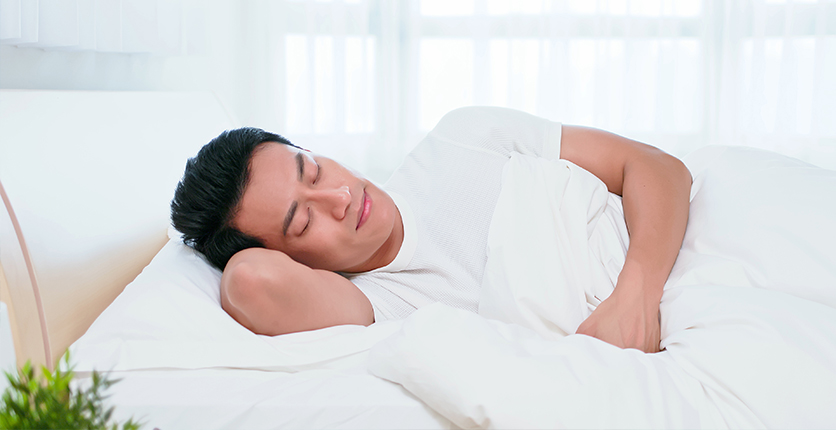When your head hurts from a migraine, it can be hard to work, sleep and go about your daily activities. Even after taking a painkiller, you may still experience a throbbing pain or a pulsing sensation in one part of your head, and feel nauseated or be extra-sensitive to light or sound. It’s not uncommon for the pain to last for hours or even days.
With June being Migraine Awareness Month, it’s the perfect time to learn about what causes migraines, how they differ from headaches, and what you can do to prevent them, following advice from Western and TCM (Traditional Chinese Medicine) physicians.
1. A migraine is not the same as a headache
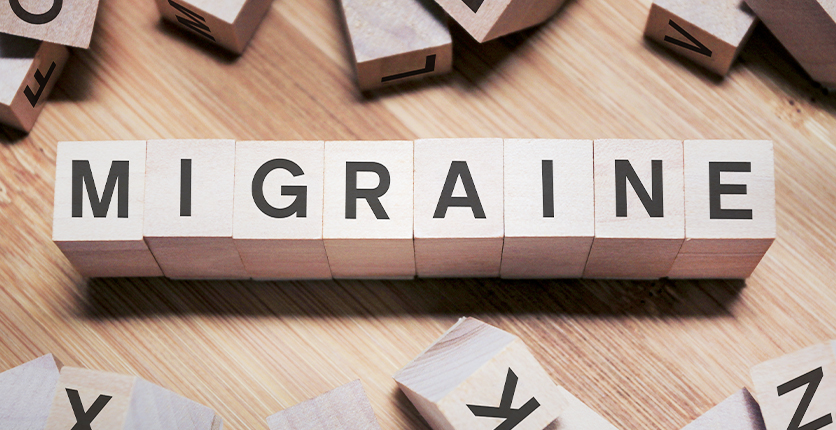
According to Dr Derek Li, a family physician at Raffles Medical, a migraine is a type of headache. People often consider any bad headache a migraine, but he states that this is not necessarily correct. A typical migraine usually includes some of these symptoms:
- Lasting four to 72 hours each time
- Being unilateral (that is, you feel it more on the left, or the right, or in the back of the head)
- Having a pulsating or throbbing type of sensation
- Is associated with sensitivity to light or sound
- Tends to cause nausea or vomiting
- Can be associated with certain nervous phenomena such as experiencing visual disturbances like zigzag lines (or black-white “static”)
“The nervous phenomena are particularly important, and we call these migraines with aura. Migraines with aura are associated with a risk of strokes,” Dr Li adds.
“In contrast, the most common benign non-migraine headache is the tension-type headache which feels more like a band-like tightness around both temples.”
He points out that another useful differentiator is that migraines do not usually get better with paracetamol-based medicines. If your headache responds to such medications, it is unlikely to be a migraine.
2. Migraines and headaches have specific triggers
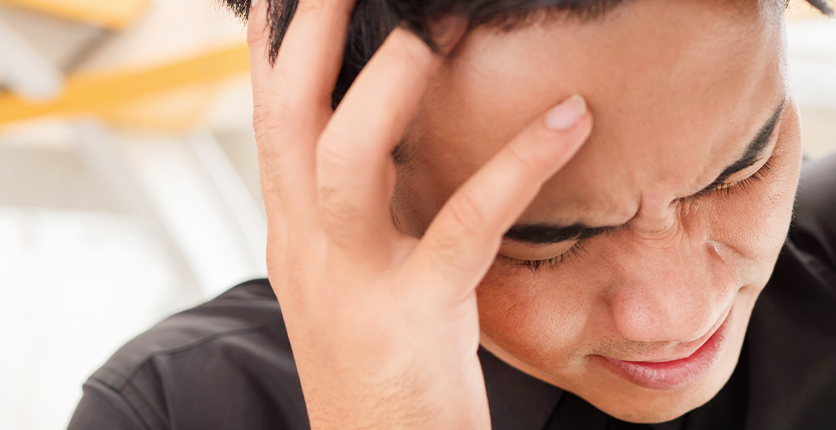
Dr Li says that the triggers for headaches and migraines are individual and can cover a wide range of possibilities.
Both headaches and migraines may be triggered by certain foods or beverages, like alcohol, chocolate, aged cheeses, MSG, aspartame and caffeine. Other triggers include sensory stimuli, such as strong or flickering light, odours, sounds or noises and excessive sun exposure; stress-related factors, like intense activity, a loss or a change, moving, and emotional stress; and a change in environment or habits, such as weather, travel, altitude, dehydration, sleep patterns and skipping meals.
The triggers particularly associated with a migraine include alcohol, menstruation, ovulation, odours, excessive sun exposure, emotional stress, a change in weather, a change in sleep patterns, and skipping meals.
According to the TCM perspective, there are many causes for migraines and headaches, says Leong Yuet Cheng, a TCM physician at Raffles Chinese Medicine. These may include a deficiency in Qi (energy) and blood, a stagnation of Qi and blood, an imbalance of Yin and Yang, as well as stress and anxiety. The restriction of Qi and blood flow causes migraines and headaches, she adds.
3. Sometimes, a migraine may be more serious than it seems
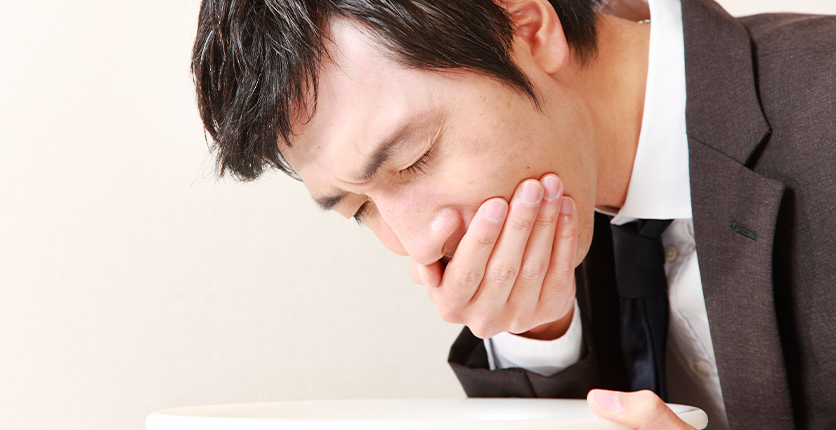
It can be challenging to know whether your migraine is an emergency or not, but Dr Li says that a good rule of thumb is that if a headache is not better with a paracetamol-based medication or a stronger painkiller like ibuprofen (also available over the counter), you should seek medical attention. If there are other alarming symptoms like severe vomiting or changes to your vision, then you should consult a doctor as soon as you can.
4. Migraines can be prevented

Dr Li says that it is possible to prevent a migraine.
“Part of this is through the avoidance of specific triggers if you can identify them. Keeping a headache diary is useful if you have frequent headaches, to note the circumstances under which headaches occur, so that you can pick up triggers and patterns.
“There are also specific medications that are used to prevent migraines, which you can consult your family physician for more information.”
5. Living a healthy lifestyle is important to keep migraines at bay
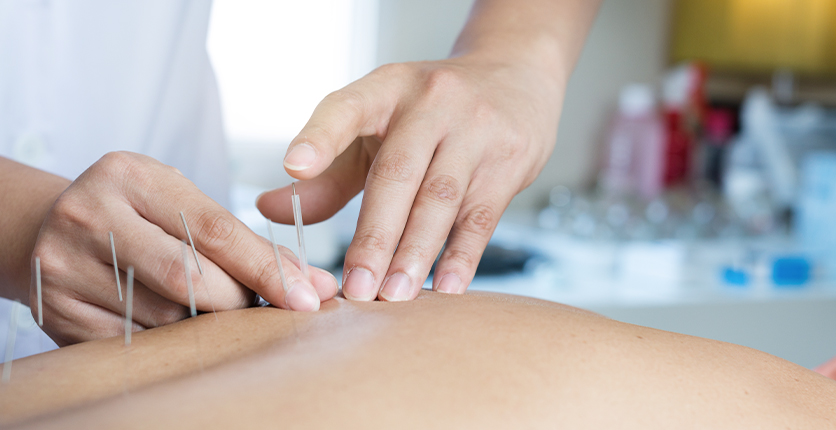
TCM believes that following a healthy diet and lifestyle can help minimise your risk of developing a migraine, says Yuet Cheng.
“A balanced diet helps to improve Qi and blood deficiency. You can also manage your stress levels by staying active and exercising regularly. Finally, you can improve your Qi and blood flow to achieve the balance of Yin and Yang, thus helping with headaches and migraines.
“Aside from living a healthy lifestyle and following a balanced diet, pressing acupoints such as LI-4 (Hegu) can help to relieve your headache or migraine. The LI-4 acupoint is located between the thumb and index finger.”
6. Medications do work to treat migraines
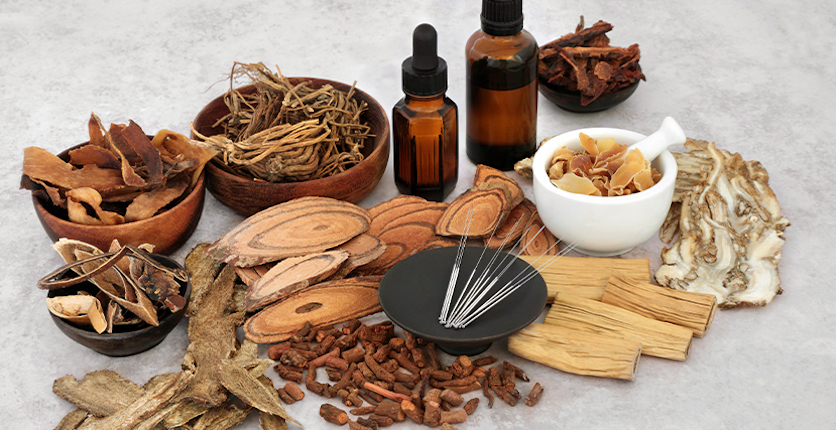
“Common headaches usually respond well to paracetamol,” says Dr Li.
“Migraines tend to be better treated with the NSAID (nonsteroidal anti-inflammatory drugs) class of painkillers, such as aspirin and ibuprofen. Migraines with aura (visual disturbance) are harder to treat and require specific prescription-only medications called triptans.”
“In TCM, acupuncture and/or TCM herbal medicine is used to treat migraines and headaches,” Yuet Cheng notes.
“Acupuncture activates specific acupoints on the head and aims to regulate the flow of Qi and blood, releasing stagnation to achieve pain relief effectively. Similarly, TCM herbal medicine can achieve the same treatment result.”
Note: Please consult your GP or physician on managing your migraines or headaches.
SAFRA members enjoy member rates on health screenings at Raffles Medical clinics. For more details, click here.
For the full list of healthcare benefits, go to safra.sg/promotions/
Want more articles like this, and other lifestyle content right in your inbox? Download the new SAFRA mobile app and opt in for the eNSman Newsletter – you don’t need to be a SAFRA member to subscribe – and never miss another story!
